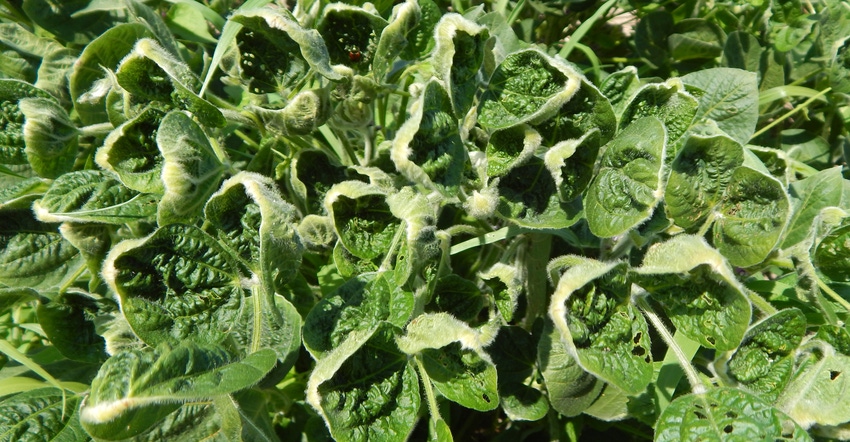
There will be changes to how regulators respond to dicamba-related complaints in 2019. That’s the word from Dave Scott, pesticide administrator in the Office of Indiana State Chemist. A major factor prompting the change is cost.
In 2017 and 2018, OISC expended an estimated $1.2 million annually on dicamba complaint response and related compliance implementation, Scott says. The agency is unable to maintain that level of resource commitment to one product.
Meanwhile, other equally or more important pesticide compliance issues have been ignored or short-changed during this intensive dicamba response period.
In 2017 and 2018, 92% of over 270 dicamba complaints involved visible symptomology on non-dicamba-tolerant soybeans, Scott notes. OISC investigation procedures can’t document yield impacts on pesticide-exposed crops. Industry members continue to provide anecdotal information to OISC that there may not have been significant yield impacts on non-tolerant soybeans from the OISC-documented exposures in these investigations.
Plans for 2019 begin with investing more heavily in dicamba complaint response for off-target movement to crops and plants other than non-dicamba-tolerant soybeans. Crops and plants specifically targeted for increased monitoring and investigation include tomatoes, vegetables, grapes, melons, gardens, ornamentals, flowers, trees and organic crops that may not be marketable if dicamba residues are present.
OISC will respond to complaints of exposure to soybeans with a process that confirms dicamba exposure symptomology without attempting to document with forensic evidence the actual cause of the off-target movement, Scott says.
If someone filing a soybean exposure complaint is insistent on a full forensic investigation, OISC will ask the complainant to provide a significant amount of upfront information about the suspected or known dicamba users in their immediate area.
OISC and the Indiana Pesticide Review Board are also working with stakeholders to identify a measurement of success for safe and effective application of these dicamba products in 2019 and beyond. Input from growers is welcome, Scott says.
About the Author(s)
You May Also Like




